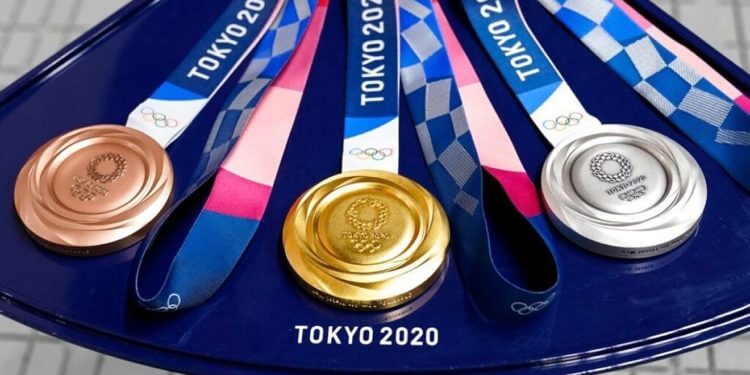The Olympic Games, which had its origins in ancient Greece is an international sporting event celebrated by people all over the world. According to Encyclopedia Britannica prior to the 1970s, the Olympic Games were limited to amateur competitors, but in the 1980s most of the events were opened to professional athletes. Olympics athletes in addition to the proud moments are also financially rewarded. Though athletes do not get paid by participating in the games, there are various ways Olympic athletes make money.
Today, the Games, which occur every 4 years are opened to all competitors be it amateurs or professionals.
In 2008, Beijing hosted the Olympics with athletes from 204 countries and regions participating in the event. In 2012, the Games was hosted in London, commemorating the 30th Olympic Games.
Despite being held this year, the 2021 Olympic Games is referred to as ‘Tokyo 2020,’ given that most merchandise had already been branded with ‘Tokyo 2020’ before the pandemic hit. A name change would have meant an additional cost.
“The primary asset the IOC and Tokyo Organizing Committee sells is its intellectual property and the corresponding brand equity associated with the marks, logos, designations, symbols, etc.,” said sports marketer Michael Lynch.
“All that Olympic IP is branded 2020, including IOC and [organizing committee] creative, sponsor creative, advertising creative, promotional creative, licensed merchandise, tickets, on-site signage, events, you name it, all about to hit the market. It would be an enormous and unnecessary expense for all of this Olympic IP to be changed,” he further added.
How Olympic athletes make money
Competitors, who take part in the Olympic Games, unfortunately, do not get paid for their participation or for winning a medal. Thus, athletes will have no share in the U$S15.4 billion event taking place in Tokyo.
Competitors, who take part in the Olympic Games, unfortunately, do not get paid for their participation or for winning a medal. Thus, athletes will have no share in the U$S15.4 billion event taking place in Tokyo.
According to the Independent, American TV network, NBC alone paid $7.7bn for the broadcasting rights to the summer and winter games until 2032 and has sold $1.25bn in advertising for Tokyo 2020. The International Olympic Committee (IOC) stands to make between $3bn and $4bn from the television rights to the games.
Despite these amounts, the 11,000 athletes taking part in the Olympics or the 4,000 at the Paralympics have no stake in it.
Though Olympic athletes do not make money from the International Olympic Committee (IOC), which are the promoters of the game, most medal winners make money from their home Olympic committee.
Below is a list of 12 countries and how much they compensate their athletes after winning a medal.
| Countries | Gold | Silver | Bronze |
| Singapore | $737,000 | $369,000 | $184,000 |
| Kazakhstan | $250,000 | $150,000 | $75,000 |
| Malaysia | $236,000 | $71,000 | $24,000 |
| Italy | $213,000 | $107,000 | $71,000 |
| The Philippines | $200,000 | $99,000 | $40,000 |
| Hungary | $168,000 | $126,000 | $96,000 |
| Brazil | $49,000 | $29,000 | $20,000 |
| Japan | $45,000 | $18,000 | $9,000 |
| USA | $37,500 | $22,500 | $15,000 |
| South Africa | $37,000 | $19,000 | $7,000 |
| Canada | $16,000 | $12,000 | $8,000 |
| Australia | $15,000 | $11,000 | $7,000 |
Some Olympic athletes are also fortunate to land endorsement deals and advertising gigs. Tennis star, Naomi Osaka reportedly made $55 million from endorsements in 12 months.
Other Olympic athletes make money from stipends or training grants from national sports associations while some others make money through crowdfunding and their regular but flexible jobs.
Performance of African competitors at the Olympic Games
| Global Rank | Team | Gold | Silver | Bronze | Total |
| 19 | Kenya | 4 | 4 | 2 | 10 |
| 36 | Uganda | 2 | 1 | 1 | 4 |
| 52 | South Africa | 1 | 2 | 0 | 3 |
| 54 | Egypt | 1 | 1 | 4 | 6 |
| 56 | Ethiopia | 1 | 1 | 2 | 4 |
| 58 | Tunisia | 1 | 1 | 0 | 2 |
| 63 | Morocco | 1 | 0 | 0 | 1 |
| 74 | Nigeria | 0 | 1 | 1 | 2 |
| 77 | Namabia | 0 | 1 | 0 | 1 |
| 86 | Botswana | 0 | 0 | 1 | 1 |
| 86 | Burkina Faso | 0 | 0 | 1 | 1 |
| 86 | Côte d’Ivoire | 0 | 0 | 1 | 1 |
| 86 | Ghana | 0 | 0 | 1 |



